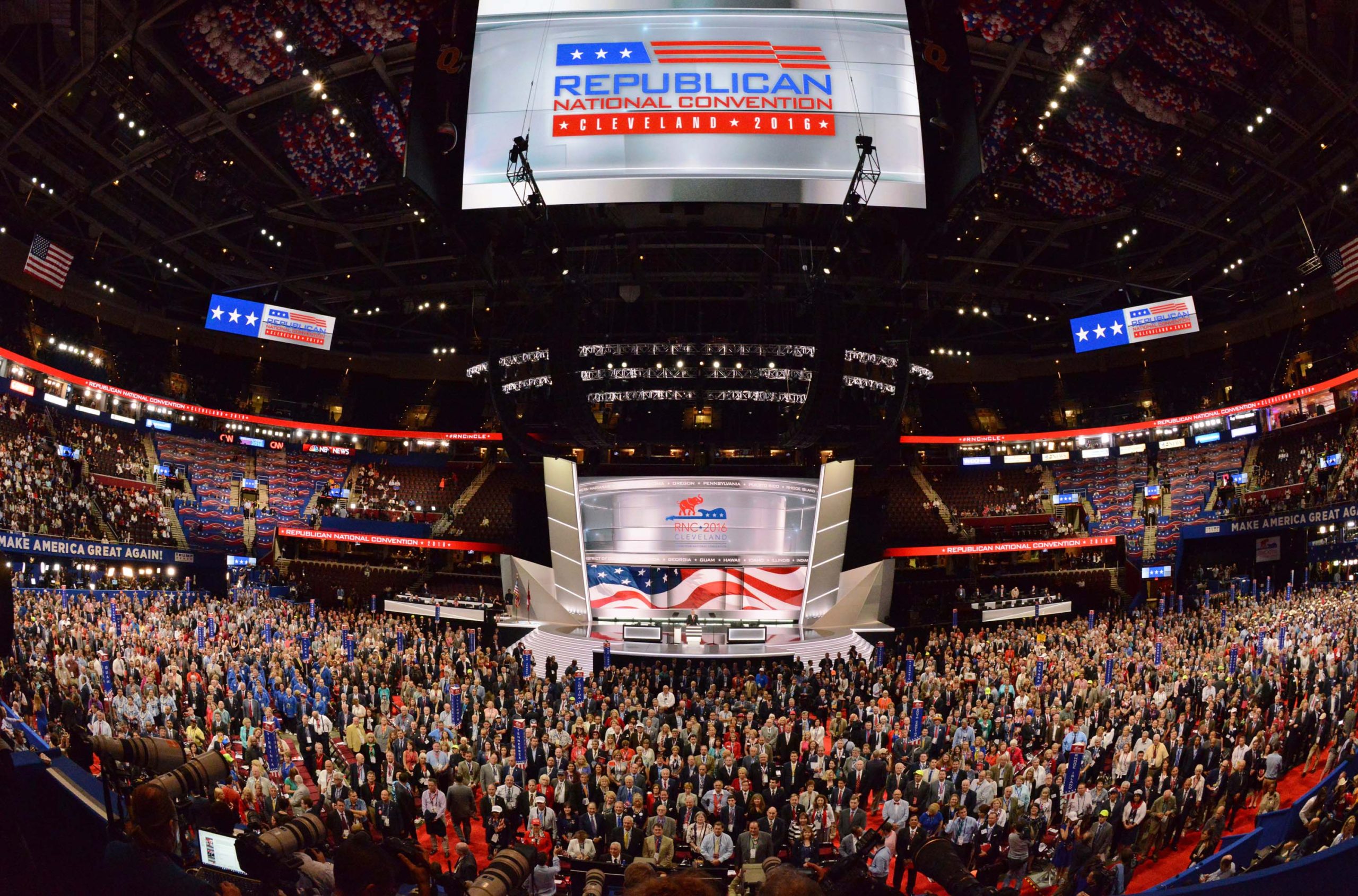Republican National Convention Overview

The Republican National Convention (RNC) is a quadrennial political event held by the Republican Party of the United States. The convention serves as a platform for the party to adopt its platform, nominate its presidential and vice-presidential candidates, and rally support for its agenda.
The RNC has its roots in the party’s first national convention, held in 1856. Over the years, the convention has evolved to become a major political spectacle, attracting media attention and shaping the course of presidential elections.
Key Themes and Goals
The key themes and goals of the RNC typically include:
- Uniting the Republican Party behind its platform and candidates
- Energizing the party’s base and attracting new voters
- Highlighting the party’s accomplishments and contrasting them with those of the opposing party
- Setting the party’s agenda for the upcoming election cycle
Platform and Policy Positions
At the RNC, the Republican Party adopts its platform, which Artikels the party’s policy positions on a wide range of issues. The platform is drafted by a committee of party members and is voted on by the delegates attending the convention.
The platform typically covers issues such as:
- Economic policy
- Social policy
- Foreign policy
- National security
- Education
- Healthcare
The platform is a key document that guides the party’s actions and serves as a roadmap for its elected officials.
Key Speakers and Participants: Rnc Convention

The Republican National Convention featured a lineup of prominent speakers and participants, including politicians, party leaders, and other notable figures. Their speeches and messages played a crucial role in shaping the convention’s narrative and resonating with the audience.
Politicians and Party Leaders
- President Donald Trump: Trump delivered the keynote address on the final night of the convention, accepting the Republican nomination for president. His speech focused on his accomplishments in office, his vision for the future, and his attacks on his Democratic opponent, Joe Biden.
- Vice President Mike Pence: Pence spoke on the first night of the convention, highlighting the administration’s record on the economy, national security, and social issues.
- Former United Nations Ambassador Nikki Haley: Haley delivered a powerful speech on the second night of the convention, calling for unity and a return to American values.
- Senator Tim Scott: Scott, the only Black Republican senator, spoke about his personal experiences with racism and his belief in the American Dream.
- Governor Kristi Noem: Noem, the governor of South Dakota, spoke about her state’s response to the COVID-19 pandemic and her support for President Trump.
Other Notable Figures
- Ivanka Trump: President Trump’s daughter and advisor spoke about her father’s leadership and his commitment to women and families.
- Eric Trump: President Trump’s son spoke about his father’s business acumen and his love for America.
- Rudy Giuliani: Giuliani, the former mayor of New York City and a close ally of President Trump, spoke about the dangers of socialism and the need to re-elect Trump.
- Kanye West: The rapper and producer made a surprise appearance at the convention, delivering a rambling speech about his support for President Trump.
The speeches and messages delivered by these individuals had a significant impact on the convention attendees and the broader public. They helped to galvanize the Republican base, energize the party faithful, and set the stage for the upcoming election.
Media Coverage and Public Perception

The Republican National Convention (RNC) received extensive media coverage, with various outlets offering different perspectives and interpretations of the event. The framing of key issues, such as the economy, immigration, and healthcare, varied depending on the political leanings of the media source. Some outlets focused on the positive aspects of the convention, highlighting the unity and enthusiasm of the Republican Party. Others emphasized the controversies surrounding the event, including the absence of prominent Republican figures and the lack of substantive policy discussions.
Public Perception
Public perception of the RNC was mixed, with polls showing that a majority of Americans had a negative view of the event. Surveys conducted after the convention indicated that the public was largely unimpressed with the speakers and the overall tone of the event. Social media data also revealed a significant amount of negative sentiment towards the RNC, with many users expressing dissatisfaction with the lack of focus on policy and the perceived divisiveness of the rhetoric.
Influence of Media Coverage, Rnc convention
The media coverage of the RNC had a significant influence on the overall impact and legacy of the event. The negative portrayal of the convention in many outlets contributed to the public’s perception of it as a divisive and uninspiring event. This, in turn, may have impacted the Republican Party’s ability to rally support and mobilize its base ahead of the upcoming elections.
Rnc convention – The Republican National Convention (RNC) is underway, and one of the most talked-about figures is Matt Gaetz. Gaetz, a Florida congressman, is a staunch supporter of President Donald Trump and has been a vocal critic of the Democrats. Read more about Gaetz’s role in the RNC.
The RNC is a major event in the political calendar, and Gaetz’s presence is sure to generate a lot of buzz.
Amidst the fervent fervor of the RNC convention, where political heavyweights command the spotlight, one name reverberated through the halls – Richard Porter, a visionary strategist whose intellect earned him accolades. His presence at the convention was a testament to the profound influence he wields in the political landscape.
As the convention reached its crescendo, the echoes of Porter’s insights continued to resonate, shaping the discourse and influencing the course of the nation’s future.